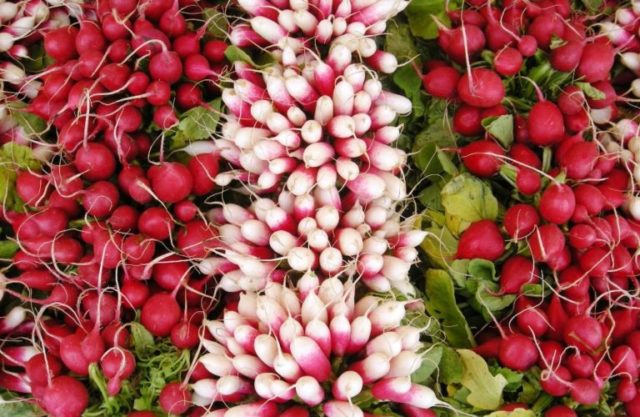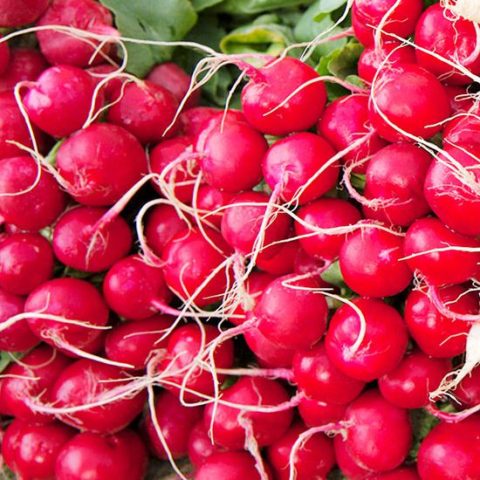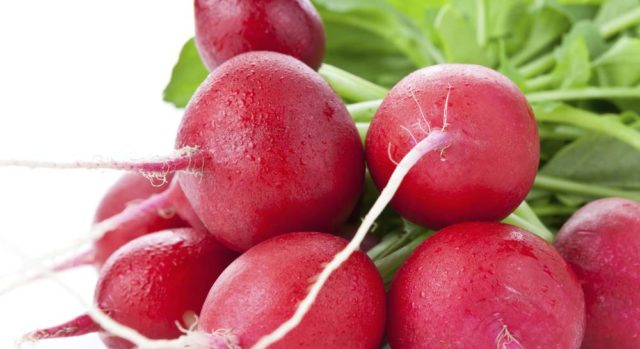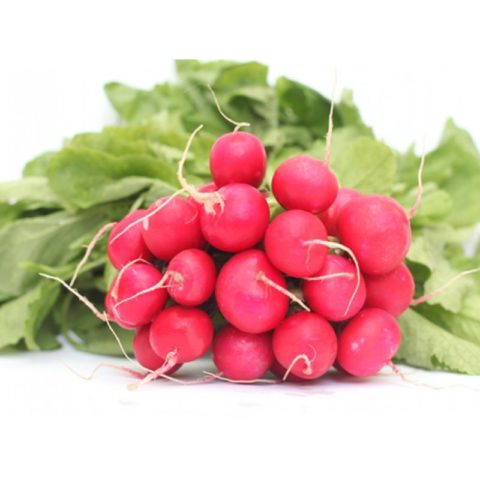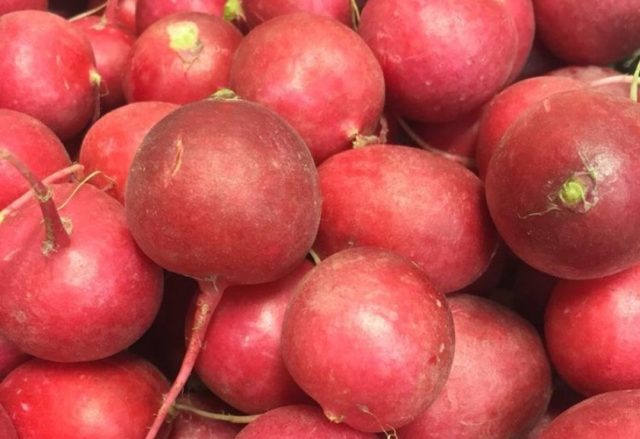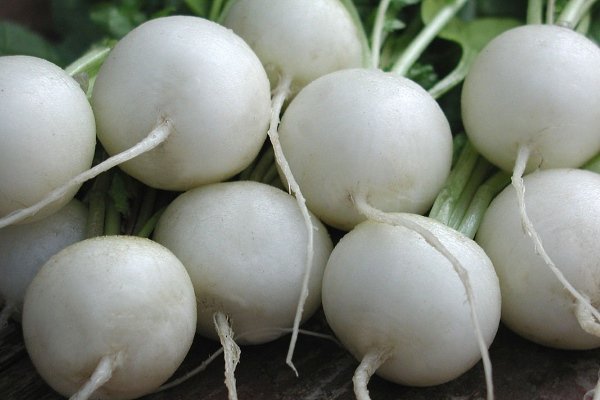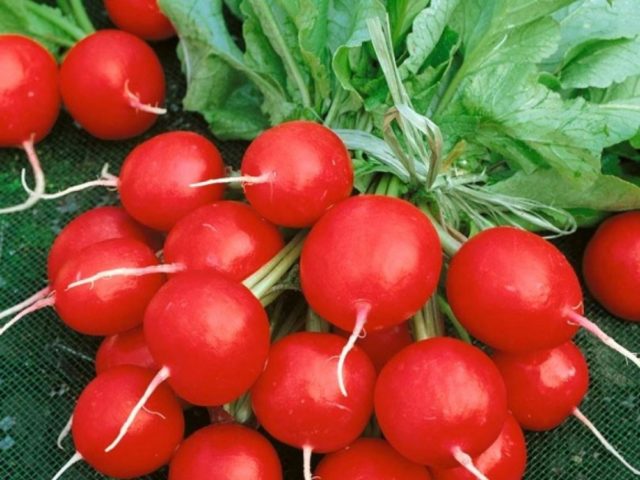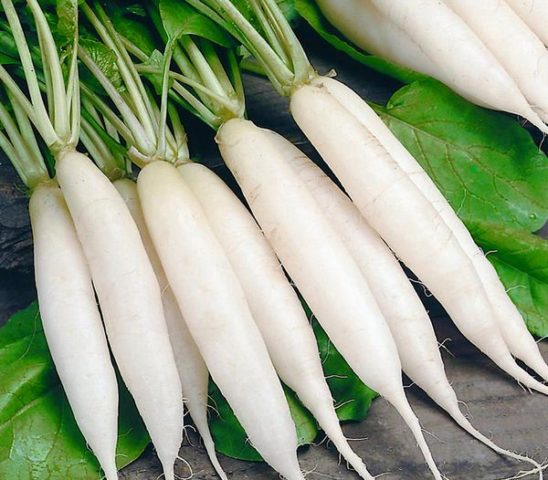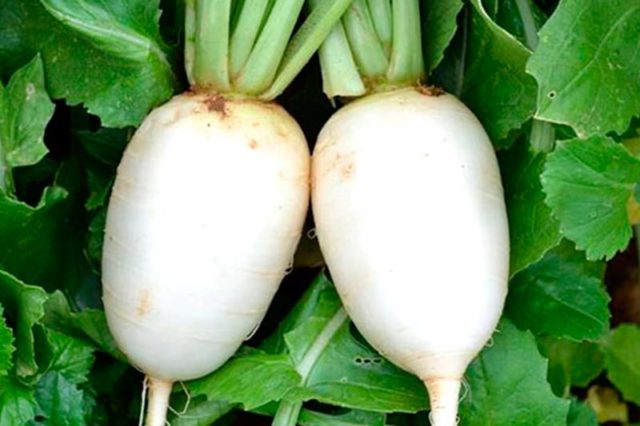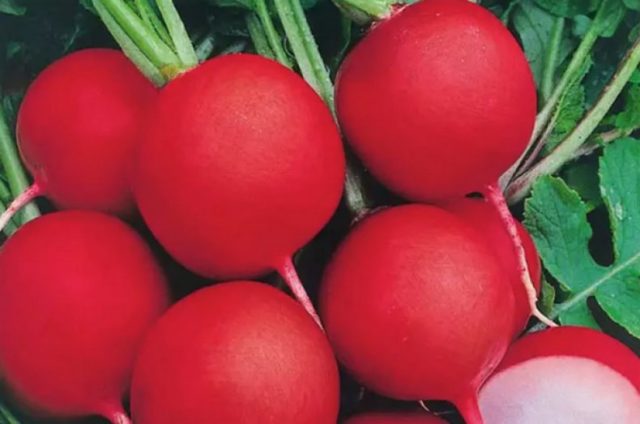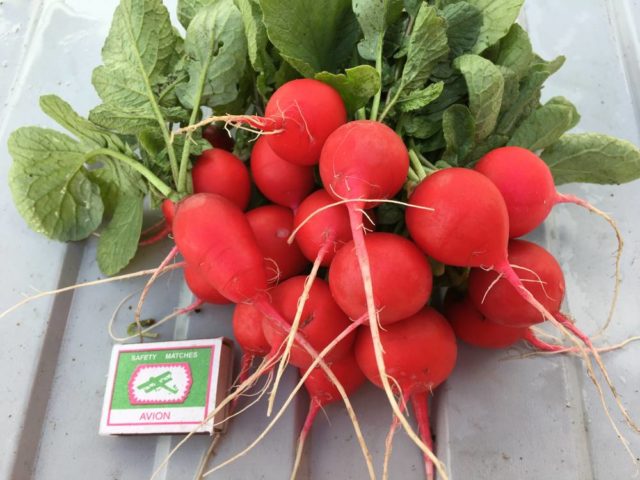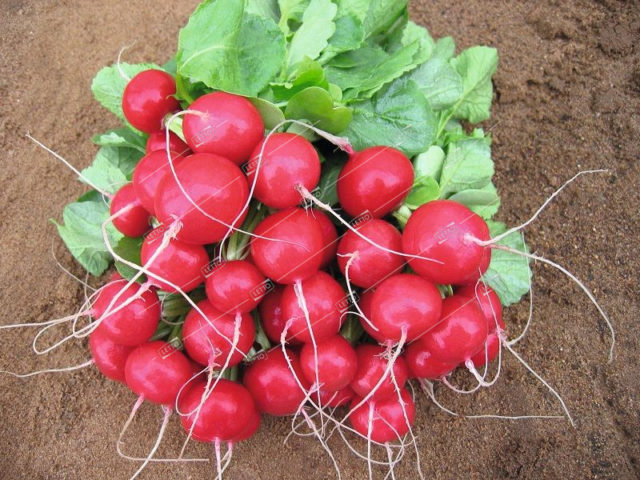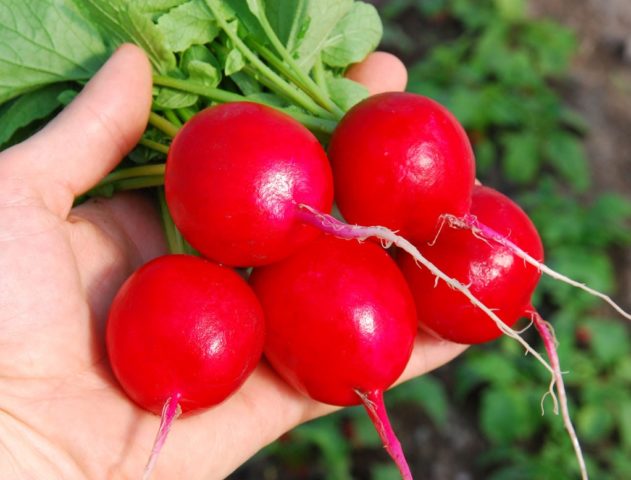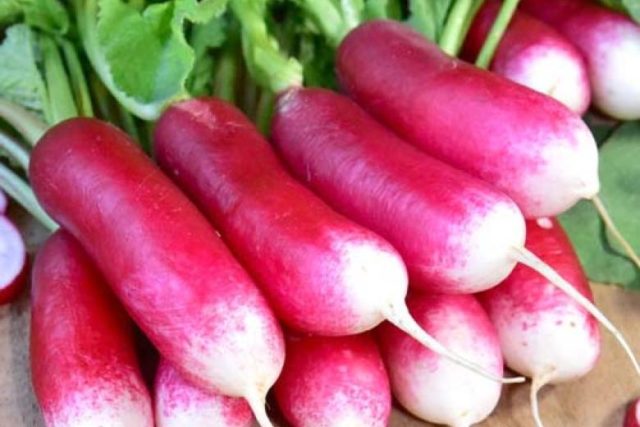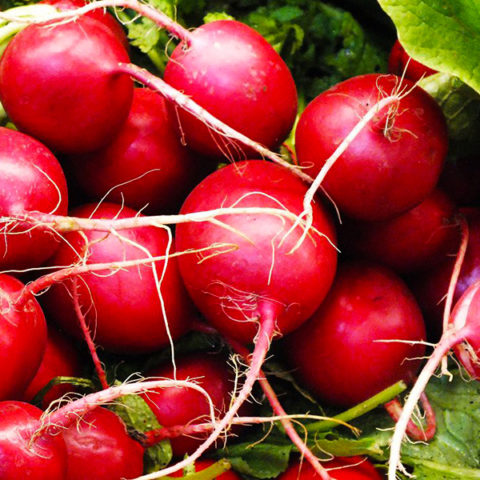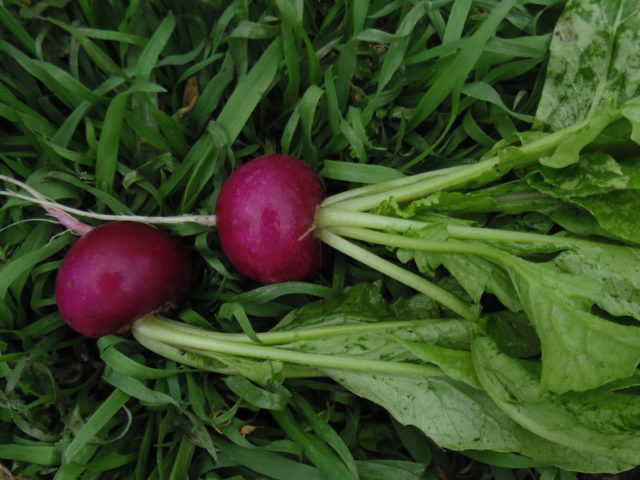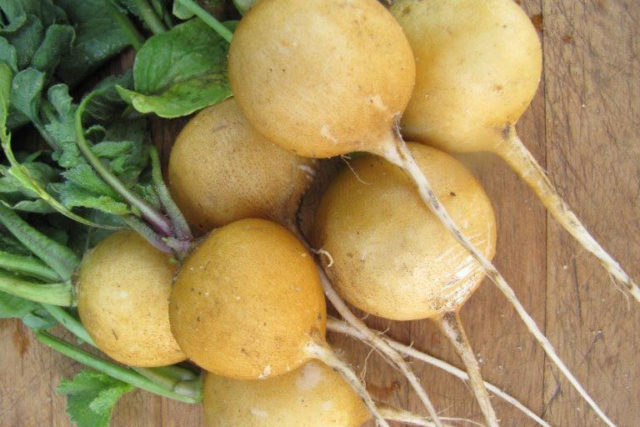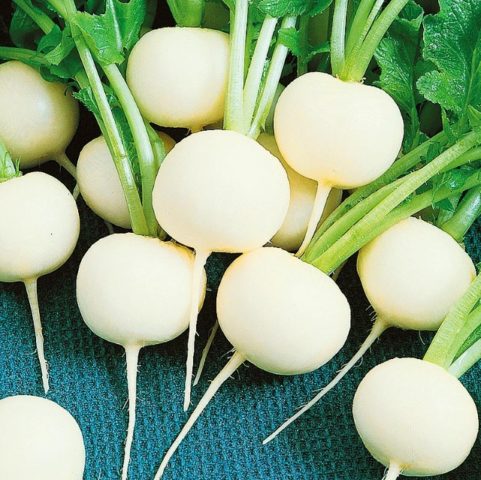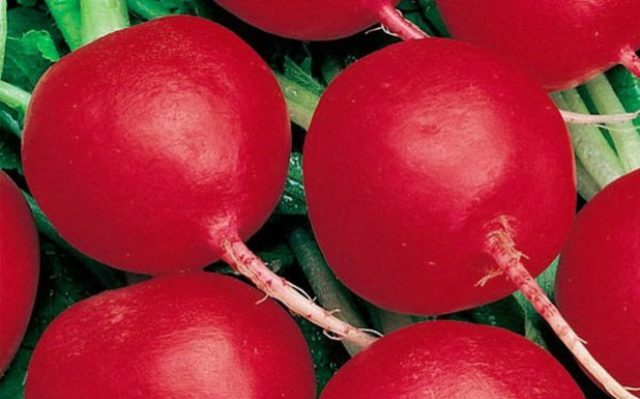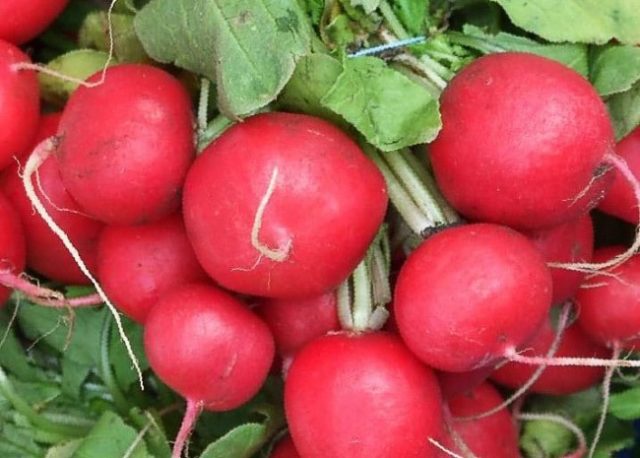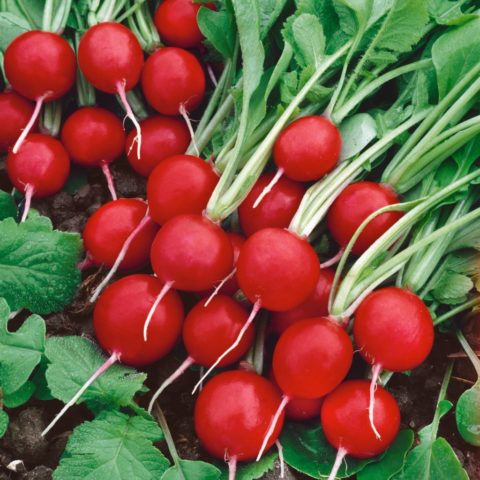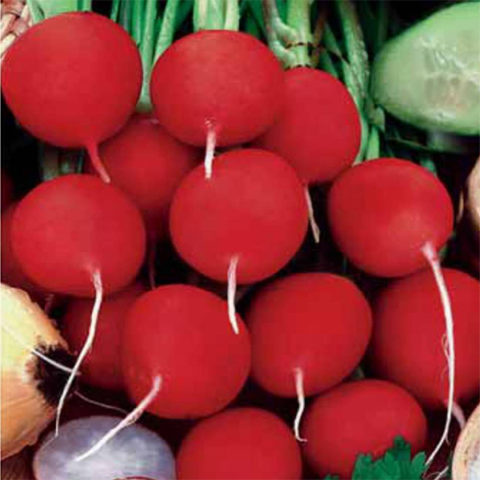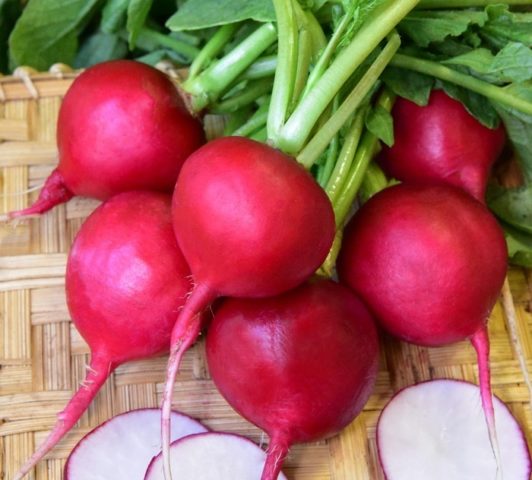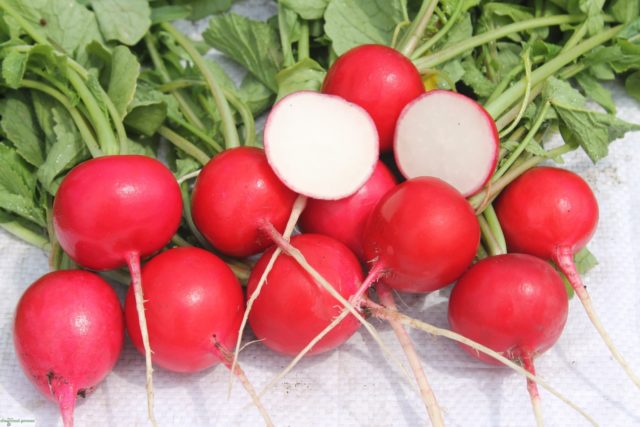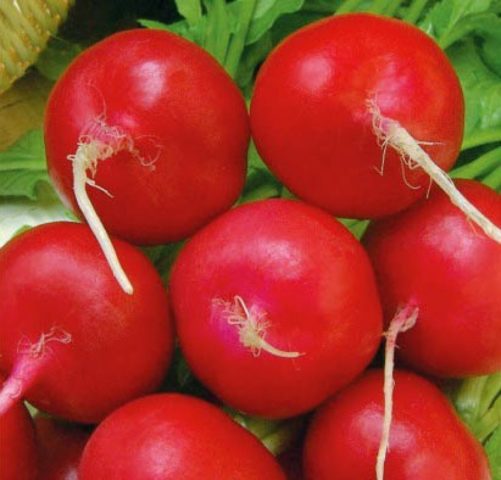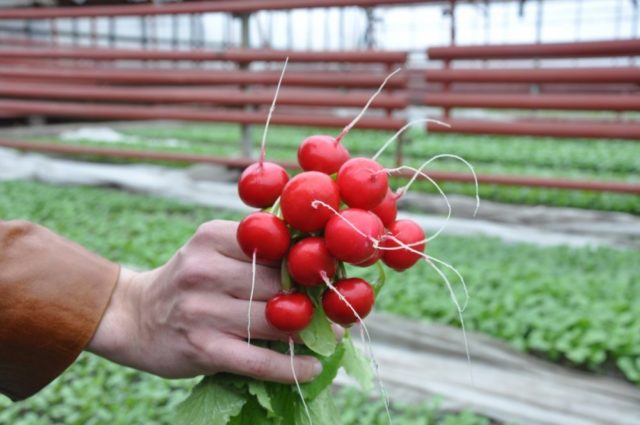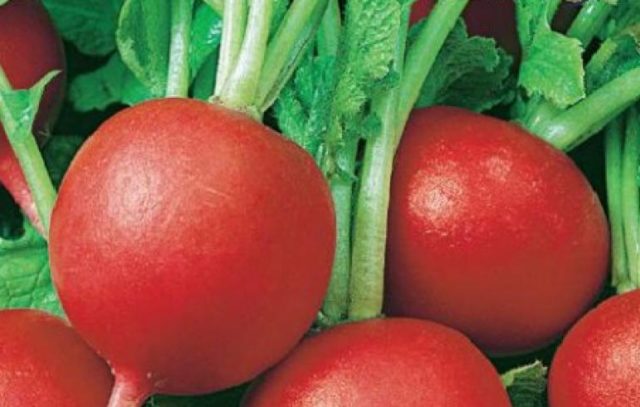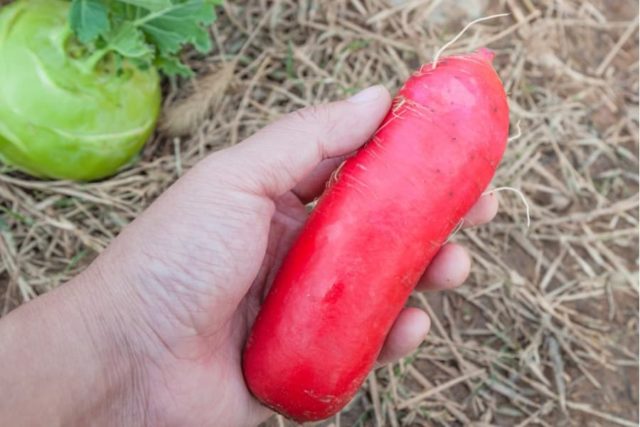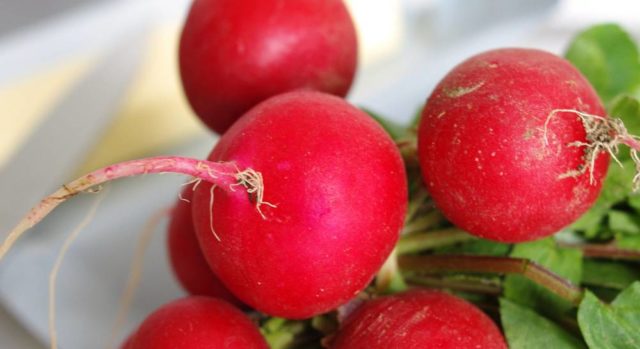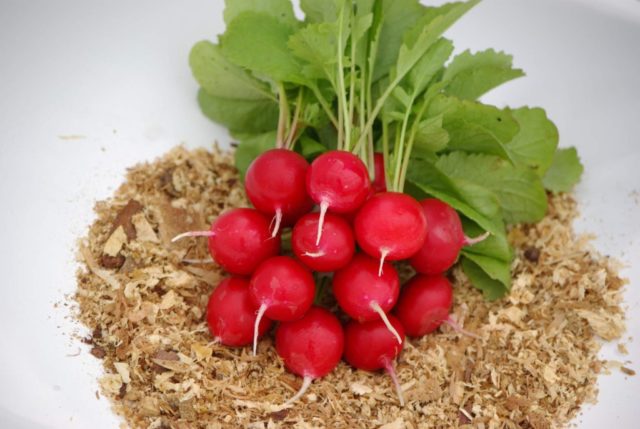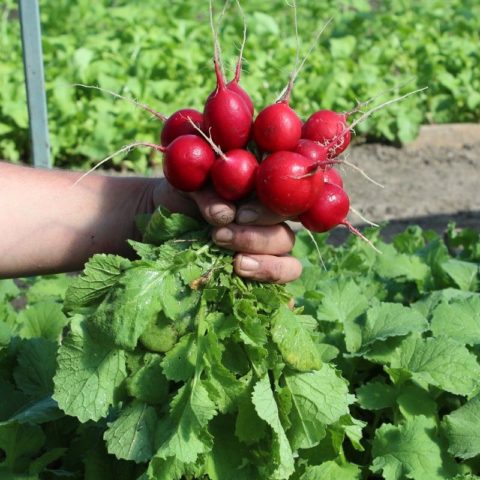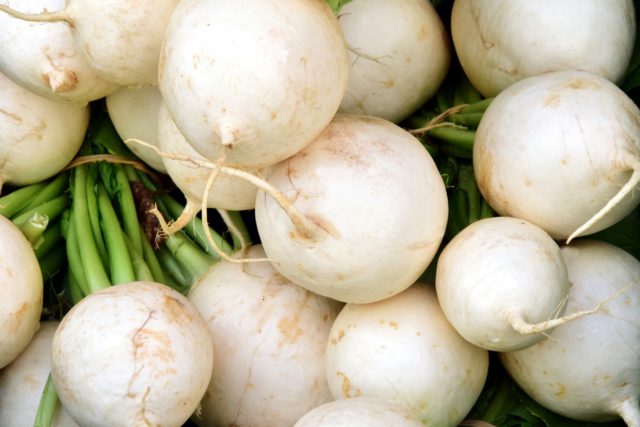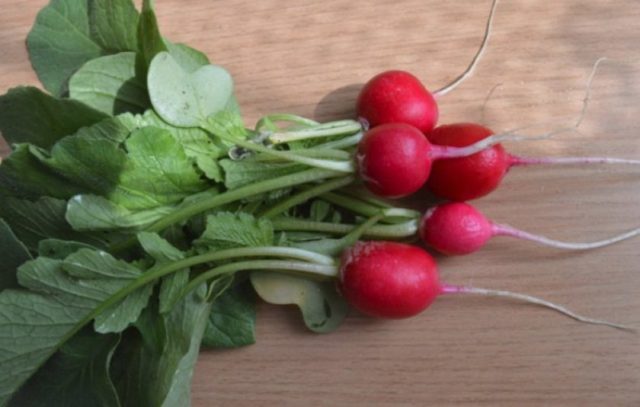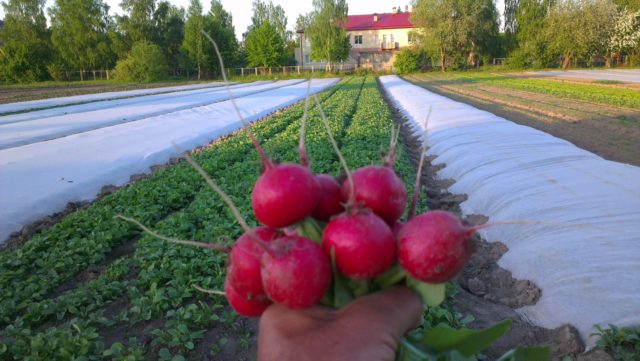Content
- 1 What qualities should radish varieties for open ground have?
- 2 Radish varieties for open ground by ripening time
- 3 The best varieties of outdoor radish for the regions
- 4 Early ripening varieties of radish for open ground
- 5 Dutch outdoor radish varieties
- 6 Large varieties of radish for open ground
- 7 Sweet varieties of radish for open field
- 8 What varieties of radish can be planted all summer
- 9 Variety selection rules
- 10 Conclusion
In many regions of the country, gardeners traditionally begin sowing with radish planting. This early ripening vegetable is quite unpretentious, however, in order to obtain a high yield, it is necessary to pay attention not only to proper agricultural technology, but also to high-quality planting material. Next, the best varieties of radish for open ground will be listed, their classification by early maturity is given, the possibility of growing various varieties in some regions of the country is assessed.
What qualities should radish varieties for open ground have?
In order to successfully grow radishes in the open field, a variety must have certain qualities.
- Resistant to temperature fluctuations... Radish is one of the earliest vegetables; a significant part of its growing season occurs in the spring. At this time, sudden changes in temperature and even frost are possible.
- Disease resistance... This plant is sensitive to acidity and soil composition, these parameters directly affect the likelihood of diseases. The more unpretentious the variety is in this regard, the more likely it is to grow a good harvest.
- Aversion to shooting... It is no secret that some varieties, even with small deviations from optimal growing conditions, may release an arrow instead of tying a root crop, in which case the crop will be lost.
Everything else depends on the preferences of the gardener. This applies to the timing of ripening, size, color of the root crop, and its taste.
Due to the wide variety, it is usually easy to choose the variety that best suits your growing conditions.
Radish varieties for open ground by ripening time
The ripening period is one of the most important characteristics. Depending on the amount of time from the moment the first sprouts hatch until the root crop reaches the state of ripeness, radish varieties are divided into several groups:
- ultra early;
- early;
- mid-season;
- late.
Ultra-early (early ripening) ripen in 16-20 days. Early radish takes a little longer to ripen the crop - 25-30 days. Mid-season varieties can be harvested in 5-6 weeks. Late radishes take the longest time to ripen, they can reach maturity in 7-8 weeks.
Early varieties of radish for open ground
Early-ripening radishes are usually eaten fresh. These root vegetables have the thinnest rind, so their shelf life is short.
16 days
Ultra-early, designed for the fastest possible harvest. Ripens in 2.5-3 weeks.
The color of the root crop is red.
Heat
It takes about 3 weeks to ripen. The fruits are crimson-red, round, even.
The pulp is pinkish white.
Presto
Reaches maturity in 2.5 weeks. Weakly prone to cracking, rarely goes into the arrow.
Root crops are rounded, with red skin and white flesh.
Ruby
A fairly well-known variety. It takes about 3.5 weeks to ripen.
Fruits are smooth, round, with a thin red skin.
Mid-season radish varieties for open ground
Mid-season radish varieties ripen in the open field for a longer time, reaching ripeness in 1-1.5 months.
The taste of a mid-season radish is bright and rich.
Alba
It is well known among gardeners because of the possibility of long storage, while the pulp remains firm and juicy, without acquiring a tinge of bitterness and without becoming cottony.
Alba root crop is white, slightly elongated. Ripens in 5-6 weeks. Resistant to shooting.
Würzburg 59
In the open field, it ripens in an average of 5 weeks. The fruits are scarlet, with white or slightly pink flesh.
An important quality is that the radish does not lose its marketable appearance and does not lose its taste during storage.
Ice icicle
Root crops are white, have a strongly elongated shape.
The pulp is dense, pungent in taste. Ripens in 6 weeks.
Autumn giant
Ripening takes from 5-5.5 weeks from the moment of germination. The root crop is white, reaching a mass of 150–170 g. The shape is elongated-conical.
The taste is medium sharp, reminiscent of a radish.
Late varieties of radish for open ground
Such varieties of radish, due to their thick skin, have good keeping quality and at the same time do not lose their commercial properties. Root crops of this group are distinguished by their significant size, as well as bright taste. The average ripening period for them in the open field is 45-56 days or more.
Dungan 12/8
Ripens in 6.5-7 weeks. Root vegetable weighing up to 80 g. Fruit peel is red. The pulp is juicy and spicy-sweet in taste.
Resistant to shooting, excellent storage.
Zarya
Popular for its high yield. When grown outdoors, the roots take about 7 weeks to reach ripeness.
The shape of the red fruits is round. The taste is pleasant.
Cherriet F1
A hybrid perfectly suited for outdoor cultivation. Resistant to weather changes, insensitive to sudden temperature fluctuations. It takes about 7 weeks for root crops to ripen.
Fruits are round, slightly elongated, red.
The best varieties of outdoor radish for the regions
Radishes can be cultivated almost anywhere. The short growing season and unpretentiousness to weather conditions make it possible to grow it even in areas where other vegetables will not grow. This is the reason for its popularity and widespread adoption.
For Moscow region
The temperate climate of the Moscow region is well suited for growing many varieties of radish in the open field. Especially popular in this region are early varieties, the cultivation of which allows after harvesting to reuse the beds for more thermophilic crops. Spring in the Moscow region is characterized by unstable weather, periods of heat can be replaced by a sharp cold snap and even frost. Due to possible temperature fluctuations, preference should be given to species that are not prone to shooting and are resistant to adverse weather conditions.
Rebel F1
An early ripe hybrid of Dutch selection. It ripens in 3.5-4 weeks. Root vegetables have a smooth, thin red skin and a juicy white flesh.
A distinctive feature of this radish variety is that the harvest ripens very amicably.
Celeste F1
It takes 3.5 weeks to harvest this early-maturing hybrid in the exhaust gas. The rind of the root vegetable is bright red.
This is one of the best varieties of radish, it has a good yield and is tolerant of the whims of the weather in the Moscow region, so it can be safely recommended for growing outdoors in the Moscow region.
French breakfast
Ripens outdoors in about 3 weeks. Weakly susceptible to disease. Fruits are round-cylindrical, strongly elongated.
The color of the peel is reddish-crimson, the root tip and flesh are white.
For Siberia
The climate of Siberia is drier than that of the European part. Suitable conditions for growing radish in the exhaust gas here come later, and the garden season itself ends earlier. Therefore, gardeners in this region traditionally prefer early varieties and hybrids.
Rondar F1
An early Dutch variety with a ripening period of 2.5-3.5 weeks. Resistant to cold weather, resistant to shooting and cracking. Root crops are round, slightly glossy, red.
This type of radish ripens not only quickly, but also amicably.
Early red.
A well-known variety of Soviet selection, which still remains very popular among gardeners. Ripens outdoors in 3-3.5 weeks.
The fruit is spherical-elongated, red. The pulp is slightly spicy.
Vera MC
Radish Vera MC was first bred in the Czech Republic. It has been grown in Russia for over 20 years. Belongs to mid-season, ripens in 4-4.5 weeks.
Rounded, even fruits of bright red color. The pulp is white, sometimes with pinkish veins.
For the Urals
The Ural region has a significant length from north to south, therefore, it is distinguished by a wide variety of climatic conditions. It is influenced by the humid air masses of the Atlantic, the coldness of the Arctic and Siberia, and dry air that comes from Kazakhstan. In this region, species with good resistance to the vagaries of the weather and to drought are recommended for planting.
Malaga
An early radish variety that takes 3 to 3.5 weeks to ripen. It has a very atypical root color for radish - purple.
The shape of the fruit is round or round-elongated. Pulp with excellent bright taste.
Zlata
Another radish variety with atypical color of root crops - yellow. Bred in the Czech Republic. Belongs to the early, matures in 3.5 weeks. Drought tolerant, almost no arrows.
White pulp, good taste.
Mokhovsky
Bred in Russia at the end of the last century. It belongs to the early maturing, the harvest ripens in 3.5-4 weeks.
The peel and pulp of the root vegetable are white. The taste is good, full-bodied.
For the middle lane
The climate of central Russia is the most favorable for growing radishes. This vegetable does not like hot and dry weather, and the cold significantly slows down the growth and formation of root crops. The central region with its temperate climate and fertile soils is almost ideal for growing radishes, both on an industrial scale and for personal consumption. An additional plus is the ability to harvest in both spring and autumn.
Alyoshka F1
Ultra-early hybrid, ripening in 2.5-3 weeks. Bred in Russia relatively recently, in 2009, but has already gained wide popularity due to its good taste and high yield.
Fruits are round in shape, with a bright red skin. The taste is almost without pungency, a little sweetish.
Corundum
Refers to early, ripens in 3-3.5 weeks. Withstands a drop in temperature up to small frosts.
Root crops are rounded, with a red skin.
Rudolph F1
An early ripening hybrid of Dutch selection with a ripening period of 3-3.5 weeks. Resistant to most diseases, slightly susceptible to going out into the arrow.
Root crops are even, smooth, round, with thin red skin. White pulp, good taste.
Early ripening varieties of radish for open ground
The use of early maturing species allows you to get a harvest in a very short time. Such root vegetables are not distinguished by their large size and pronounced taste, their main purpose is to use them in salads. Early-ripening radishes are not intended for long-term storage, therefore they are usually planted in small quantities and used for their own consumption.
Alex F1
Refers to early ripening hybrids, 2.5-3 weeks pass from germination to harvest. Resistant to cracking, can be grown in conditions of lack of sunlight.
Fruits are spherical, red with white pulp. The taste is good.
Duro Krasnodarskoe
An early ripe radish variety with a ripening period of about 3.5 weeks. Can reach significant sizes.
Round root crop, slightly elongated. The peel is thin, reddish-crimson. The pulp is juicy, with a slight bitterness.
Carmen
Early maturing, ripens in 3-3.5 weeks. Differs in good resistance to the vagaries of the weather, is not prone to shooting and flowering.
Root vegetables are spherical, bright red, tasty.
Sora
A product of Polish selection. Early maturity, reaches maturity in 3-3.5 weeks. It has excellent resistance to weather fluctuations.
A root vegetable with a thin red skin. The pulp is dense, white.
Dutch outdoor radish varieties
The Dutch breeding school is considered one of the strongest in the world. Many varieties and hybrids of radish have been bred in this country. A distinctive feature of Dutch radish varieties is their good resistance to unfavorable weather conditions, as well as immunity to many diseases, which makes it possible to obtain good yields of root crops in many regions of Russia.
Anabel F1
An early ripe honeycomb hybrid with a ripening period of about 3.5 weeks. It has many positive qualities: it is shade-tolerant, resistant to temperature fluctuations.
The harvest ripens almost simultaneously. Root crops are bright red, excellent presentation. The pulp is white, the taste is rich.
Irene F1
The hybrid is perfectly adapted to growing in stressful conditions: temperature fluctuations, lack of illumination, cold. Ripens in 4 weeks or more.
The shape of the root crops is spherical, rounded, the color of the peel is bright red. The pulp is white.
Caspar F1
A very early hybrid, ripens in 2.5-3 weeks. Resistant to flowers.
The shape of the root crop is spherical or slightly elongated, the color of the peel is red, the flesh is white, dense, juicy.
Large varieties of radish for open ground
With good care, many varieties of radish are capable of forming a root crop of considerable size. However, under normal conditions, the average size of such fruits is small. Therefore, lovers of large forms can be recommended to use special varieties of large radishes for planting in open ground.
Ascania
It belongs to the early maturing, ripens in 3.5-4 weeks. The shape of the root crop is slightly elongated, rounded. The skin color is bright, red.
First introduced in Germany. A root crop with a good hoopoe can reach 10 cm in diameter.
Red giant
A variety of Japanese selection, which is widespread in Russia. Root crops are round-cylindrical, bright red, ripen in 5-5.5 weeks.
The average weight of fruits is 40-45 g. The harvest can be stored up to 3 months if the conditions are met.
Parat
A variety of German selection, early ripening. It ripens in 3-3.5 weeks. The root crop is red, spherical.
It is recommended to harvest this radish as soon as the roots reach ripeness. Otherwise, its taste deteriorates.
Sweet varieties of radish for open field
A feature of many varieties of radish is the characteristic sweetness in the taste.Such root vegetables are most suitable for preparing salads and light snacks.
Soundboard
Bred in Russia. Maturity in 3-4 weeks. The root crop is spherical, red.
Resistant to heat and drought. Feels good in low light.
Mercado
Differs in uniform growth and amicable ripening of the crop. Ripens in 4 weeks.
Fruits are globular, with a red skin. The taste is sweetish, the pungency is felt weakly.
Quart
A product of Soviet breeders at the end of the previous century. However, it is still popular. Early, ripens in 3.5 weeks.
The shape of the root crop is spherical or slightly elongated. The rind is rather thin, red.
What varieties of radish can be planted all summer
Radish is considered a crop with short daylight hours and moderate temperatures. Optimal illumination for it is not more than 12 hours a day and the air temperature is not higher than + 22 ° С. In summer, these figures are significantly higher than necessary. This is one of the main reasons that this crop is not grown outdoors in summer, as there is a high probability that the entire crop will go to the arrow. However, if you artificially simulate the conditions that are necessary for the plant, then many varieties of radish can be planted all summer.
Daylight hours in this case need to be artificially limited to 11-12 hours, covering the beds with an opaque film, without waiting for the sun to set. And also it is necessary to use species that are not prone to shooting for planting.
White Nights
Mid-season, takes 5-6 weeks to ripen.
The root crop is white. The taste is bright, full-bodied. The harvest can be stored for up to 3 months.
Virovsky white
A very old and well-deserved variety, bred in the Soviet Union back in the 50s of the last century. Resistant to flowering and shooting.
Mid-season, ripens in 5-5.5 weeks. The root crop is white, rounded, slightly elongated. The pulp is white, with a good bright taste.
Child F1
An ultra-early ripening hybrid with a ripening period of 2.5-3 weeks. Does not shoot.
The root crop is spherical or slightly elongated, red, large. The taste is good, almost without pungency.
Growing radishes in the open field with artificial limitation of the length of daylight hours is especially important for the northern regions, where the air does not warm up much, and daylight hours are much more than 12 hours. Undoubtedly, this will require some additional costs.
At the end of summer, radishes can be planted to re-harvest. At this time, the weather conditions and the length of daylight hours are close to optimal, so it is quite possible to grow any early-ripening radish in the open field in the remaining time, for example, the French breakfast described above.
Variety selection rules
When choosing seeds for sowing in open ground, several criteria should be followed:
- Early maturity... For the fastest possible harvest, it is better to use seeds of ultra-early and early varieties of radish with a short ripening period.
- The tendency of the variety to shoot... If the weather conditions for growing radishes are not quite suitable, non-shooting varieties and resistant hybrids should be chosen.
- Keeping quality... Root vegetables are used mainly fresh. If you plan to lay a part of the crop for storage, you should give preference to varieties with good preservation.
- Disease resistance... Despite the fact that the growing season of radish is short, the list of possible diseases in this plant is very extensive. When purchasing seeds, you should pay attention to species that are resistant to the main diseases of radish, such as keela or mosaic.
As a recommendation, it can be advised to use zoned varieties for growing, in this case, the likelihood of growing a decent crop increases significantly.
A short video about the intricacies of the cultivation of radishes in the open field:
Conclusion
There are quite a few factors to take into account to determine the best outdoor radish varieties. However, the future harvest depends not only on the quality of the planting material. Of great importance is the composition of the soil on which the radish is grown, proper agricultural technology, timely and high-quality care. Unfortunately, the "golden" seeds do not exist, and practice shows that the best assistant in choosing is only one's own experience, gained over the years.
